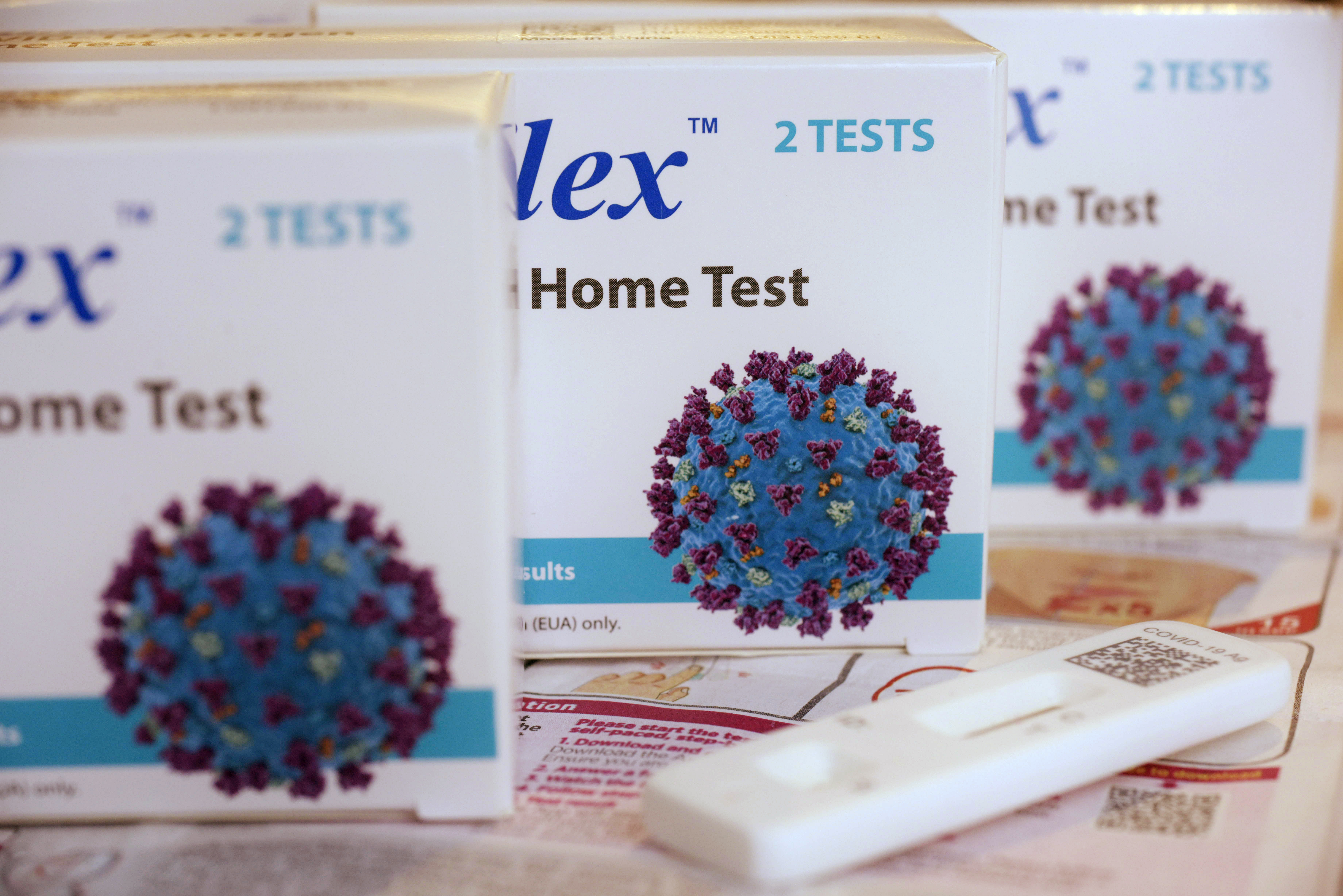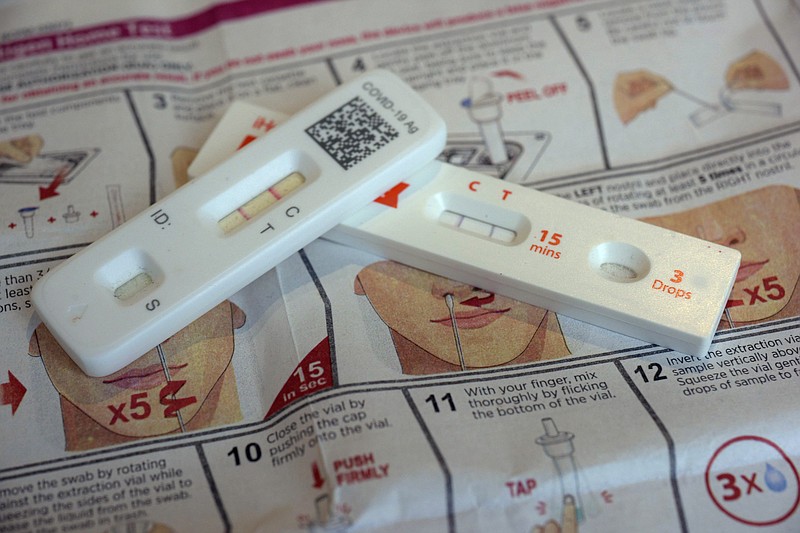WASHINGTON -- When the covid-19 public health emergency ends in the U.S. next month, there will still be access to a multitude of tests but with one big difference: who pays for them.
For the first time, Americans may have to pick up some or all of the costs, depending on insurance coverage and whether the tests are done at home or in a doctor's office. But there's still time to get some free tests before the May 11 change, and there could still be free ones available afterward.
Some state and local governments may continue to distribute free home tests through clinics, libraries and community centers. The federal government, for now, is still sending free tests through the U.S. Postal Service to households that haven't already received two shipments.
For old, unused tests, the expiration date on the package may have been extended. The Food and Drug Administration's website provides a list to check.
The biggest changes will be for over-the-counter tests, which account for the vast majority of screening in the U.S. today.
Since early 2021, the federal government has required all private insurers to cover up to eight covid-19 tests per month. That requirement will soon go away. Coverage is also scheduled to lapse for tens of millions of senior citizens in the federal government's Medicare program.
While some private insurers may continue to cover all or some home tests, there will no longer be a nationwide rule. A two-pack of tests typically costs between $20 and $24.
One exception will be for those enrolled in the government Medicaid program for low-income individuals and families, who will continue to receive free tests until September 2024.
Americans can also expect to pay more for any covid-19 tests performed at a hospital, clinic or doctor's office.
Insurers have been barred from charging copays, or any other cost-sharing fees related to covid-19 testing. That requirement also ends next month.
While insurers will still cover basic testing costs, some people could face new fees for a portion of the test's price or for the services of the health professional performing it. Lab tests have typically ranged between $70 and $100 and some of that could be passed along to patients.
Covid-19 vaccines and drugs will remain free because they are not paid for through insurance, but by the federal government.
One concern is that uncertainty around testing costs could lead to delays in treatment. Current treatments for high-risk patients, like Paxlovid, generally need to be taken within the first few days of symptoms to be effective.
As of September, manufacturers were still producing over 400 million tests per month, far exceeding U.S. testing levels, according to Duke researchers.
Companies including Abbott Labs say they will be able to ramp up test production as needed. But the company declined to discuss specific production targets or how they will be impacted by the end of the health emergency.
Congress has shown little willingness to buy more tests and the Biden administration did not propose new spending in its latest budget.
The hundreds of different covid-19 tests authorized by the Food and Drug Administration over the last three years will remain available after May 11. That's because the FDA approved those products under a separate emergency measure that isn't affected by the end of the national declaration.
 COVID-19 antigen home tests are photographed in New York on Wednesday, April 5, 2023. When the COVID-19 public health emergency ends in the U.S. in May 2023, many people will have to pick up some or all of the costs, depending on their insurance coverage and whether the tests are done at home or in a doctor's office. (AP Photo/Patrick Sison)
COVID-19 antigen home tests are photographed in New York on Wednesday, April 5, 2023. When the COVID-19 public health emergency ends in the U.S. in May 2023, many people will have to pick up some or all of the costs, depending on their insurance coverage and whether the tests are done at home or in a doctor's office. (AP Photo/Patrick Sison)